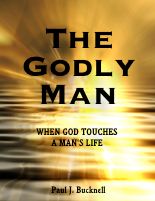|
FEAR OF GOD
Living in the Awe Fear not man |
 |
EVALUATING OUR FEAR OF GOD
We can get a better perspective of our fear of God if we answer a few questions:
- Let's first rate our fear of God.
From a scale to 0 (none/dangerous) to 10 (high/wonderful), how do you rate your fear of God?
- 0 1 2 3 4 5 6 7 8 9 10 -
- List the last three times you did or did not do something because you knew that God would not be pleased.
1)
2)
3)
 --- Purchase The Godly Man and its ten studies in easy epub or pdf format!
--- Purchase The Godly Man and its ten studies in easy epub or pdf format!
- Think of the last two times you at first were timid about obeying the Lord but then because you sensed God wanting you to do something, you still went ahead and did it.
1)
2)
In order to evaluate yourself, notice how long ago these events have taken place. How sensitive are you now? What has made you more senstive? What has caused you to be less sensitive to God's will?
The secular mindset has greatly influenced the Christian church. Secular stands for the absence of God's influence. The 'fear of God' on the other hand represents having sensitivities to the person and ways of God. We discover the great war going on when we are pressured into living as if God is not living. When we live without the consciousness of God shaping our decisions, we then are 'practical atheists.' (1) We might say we believe in God, but we don't actually live as if He exists. Let's evaluate three areas of tension to see how secularism has pressured you.
- Secular represents that framework of mind and lifestyle that is devoid of God's influence. They prize their independence and freedom. They do not want to hear of God or His commands because it threatens their secularism. Do you share the gospel with others or merely use 'friendship evangelism'?
- 'Fear of God' represents the life which is totally influenced by God and His wishes. His commands are so important to us that we obey them even if it means less money (pay full taxes), threaten job security (confess stealing), lose a boyfriend (keep to standards). We do these things because we know God expects them. We are fearful of repercussions if we do not obey.
- "Everybody else does it." "I look like an idiot if I obeyed the law." Obedience to driving laws are important. Indeed there will be emergencies, but regularly do we have our neighbor dictate our speed and parking habits or do we allow the fear of God regulate our speed, observation of stop signs and other motor vehicle laws?
How did you do on your evaluation? Were you able to notice any patterns? For example, have you been living as a practical atheist? Or do you find that in all but one situation you find that you do well? What is that situation? When did it start? What keeps you from giving that area to the Lord? We should not totally trust our evaluation because of our deceitful hearts, but this is the reason we look at what we did rather than what we say we do.
On the next page we will look at how to develop the fear of God. (Next page))
Fear God and Fear not ManFearing God | Problems with Fearing God | Fear of God in NT | Fear and Love of God | A Shaping Fear Other Titles in 'The Godly Man' SeriesPure Heart | Humble | Gracious | Loving | Truthful | Faithful | Waiting upon God | Good | Righteous |